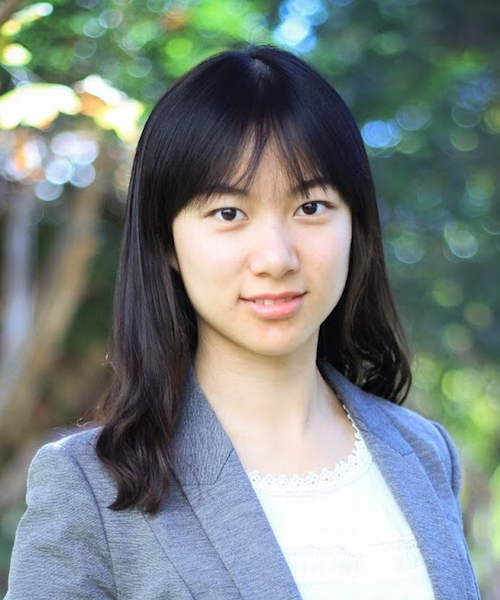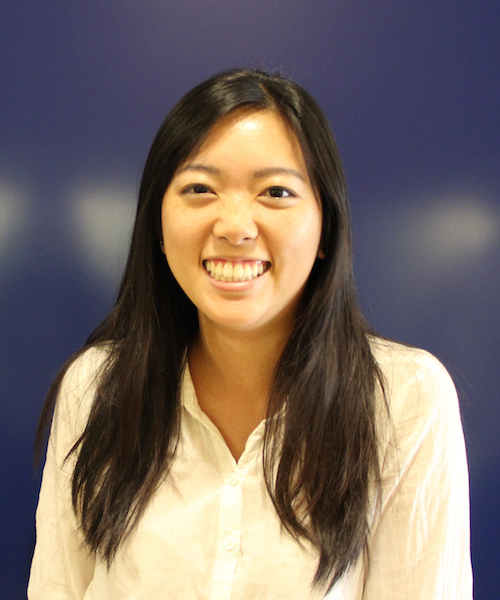
Paint this beautiful blueprint of the future together, shall we?
Ruolin Zhao | July 31, 2018
Responding To: Reflecting on the 2017-2018 U.S.-China Student Fellows Program
Michael Mullaney
The notifications from our cohort’s WeChat group continue to appear almost daily. First formed back in September during our Washington, D.C. conference, the other nine U.S.-China fellows and I used this private chat to communicate everything from our ‘trade war’ commentary to wishing one another happy birthday. In all honesty, I did not expect such a bond to form among the American students, let alone all ten of us. Cultural, linguistic and even geographic divides initially gave me the impression that our interactions would be limited. Our recent conference in Beijing proved otherwise. Often communicating in a mix of Chinese and English, my friends left me with two significant impressions. First, that they themselves are forging paths towards impactful and successful careers. Second, that the rising generations of Chinese and Americans are more than capable, and in fact already pioneering, a cooperative and mutually beneficial relationship.
Five ‘American’ students and five ‘Chinese’ students made up this year’s cohort, but such a simple description does not do the diversity of the group justice. Ruolin, originally from Beijing, studies in America. Yunxin, also Chinese, spent a semester at Columbia. Joy attended undergrad at South Central University in China but will receive her master’s from Boston University. Myself, Yami, Ulysses and Jessie are all American but studied abroad in China. Yami is an immigrant. I am a seventh generation American. Our grandparents come from Nanjing, Shandong, the Dominican Republic, Massachusetts and Michigan. During an exercise in which we tried listing our grandparents’ values, the ‘Chinese’ side outnumbered the ‘American’ side six to two. We were reminded of the cultural contrasts between our two countries: a nation overwhelmingly made up of immigrants, and a society with a history that dates back five thousand years.
This diversity of interests and perspectives contributed to an eye opening experience in Beijing. For example, a number of Chinese officials employed the label ‘developing nation’ when describing China, a country whose economy will soon rise to the world’s largest. Yami, an economics major and immigrant from the Dominican Republic, explained how her definitions of developing and developed differed from the common Chinese perspective. The majority of this discussion concerned China’s Belt and Road Initiative and other projects that involved heavy overseas investment in Africa and Latin America. Japan, South Korea, North Korea and a number of other countries were also repeatedly mentioned as we tried to consider their perspectives and relevance to certain issues. The past year has taught me the U.S.-China relationship is anything but bilateral; it affects every corner of our world.
I still feel it is important to isolate China as a distinct nation if America wishes to better our relationship with the Chinese people and government. The most impressionable moment of our Beijing conference was a comment from Yunxin. She noted a trend in the way the American students and Chinese students viewed how nations should go about their relationships with other countries. Americans are typically ideological, advocating for democratic values, freedoms and liberties. Personally speaking, I believe societies are best suited for progress and development when individual liberties like speech, press and religion are safeguarded. Oftentimes however, Chinese are more pragmatic. Having been raised by grandparents who survived a famine, civil war and societal change unlike anything my American family has experienced, Chinese are more likely to prioritize the physiological elements of Maslow’s Hierarchy of Needs. When a country or a people need food, clean water, and paved roads, the ability to cast a vote for a local leader is naturally subordinated.
Despite maintaining my own opinion, I believe neither perspective is right and neither is wrong. From this experience, I have learned it is critical that neither the United States nor China impose its beliefs onto other societies as every case is different; a country’s people, beliefs, and most importantly history should decide what path they take. At the same time, it is the duty of developed nations to lend their experiences and resources to those in need.
Michael Mullaney is a junior at Georgetown University (C'19) majoring in government with minors in Spanish and Chinese.

Ruolin Zhao | July 31, 2018

Ulysses McGuinness | July 31, 2018

Haile Chen | July 26, 2018

Cynthia Wang | July 24, 2018

Jessie Dalman | July 20, 2018

Yamillet Payano | July 19, 2018

Chenyu Wu | July 18, 2018

Yunxin Wang | July 18, 2018

Hongjin Xu | July 16, 2018